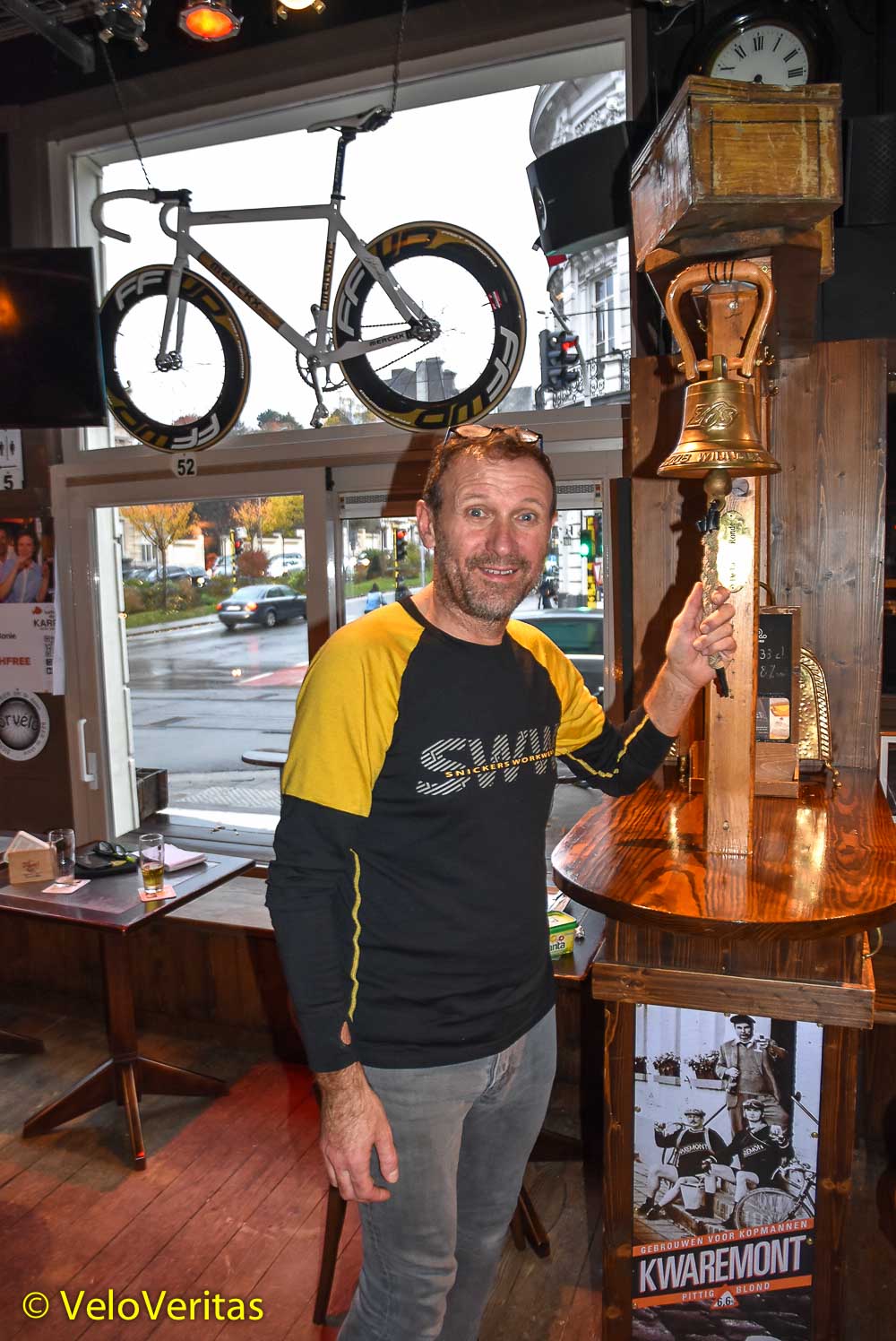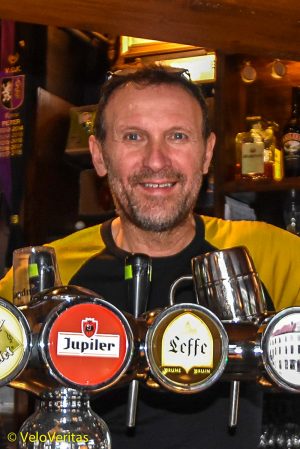
If there’s a rider more closely associated with a city than Iljo Keisse is with Gent then I can’t think of it.
Born and bred in the capital of East Flanders, raised on the boards of the Blaarmeersen velodrome, the Gentenaars love him and he loves them. They all pay hommage at the Kuipke velodrome, home to the annual Six Day where Keisse is King; six wins from 11 podiums bear witness to that.
When we say he was raised on the boards of the Blaarmeersen we don’t exaggerate, his father, Ronie managed the velodrome – which hosted the 1988 World Track Championships – and is now the “Vlaams Wieler Centrum Eddy Merckx”.
As most kids kicked a ball around the streets, Keisse swooped and soared on the steep bankings; the result can be seen now in a man who is the consummate trackman – smooth, elegant, at one with boards and bicycle.
Ronie now owns the legendary Café de Karper, a favourite student haunt in Gent, just a five minute walk from the Kuipke and the only place to be on a November Sunday evening when the Six Day finishes.
We sat down with Ronie on the Monday morning after the Six to discuss the life and times of his boy, one of the very last real ‘vedettes’ – star Six Day men.
Did you ever race, Ronie?
“Yes and no!
“I wanted to but my mother forbade it and tore up my application for a race licence.
“Then I wanted to be a cycle mechanic but my parents said that I must study and get a good job. But my studies ended when I got married and had children.
“I had to make money so I organised a burger van and took it to all sorts of sporting events, basketball, soccer and the World Track Championships in 1988 at the Blaarmeersen.
“It was then that the guy running the track told me wasn’t really interested in what he was doing and in 1989 I took over as manager of Gent’s second velodrome.
“I ran it until 2003 when the city sold the facility to the government – it was closed for three years while they converted it into the Vlaams Wieler Centrum Eddy Merckx and I had to find a new job.”
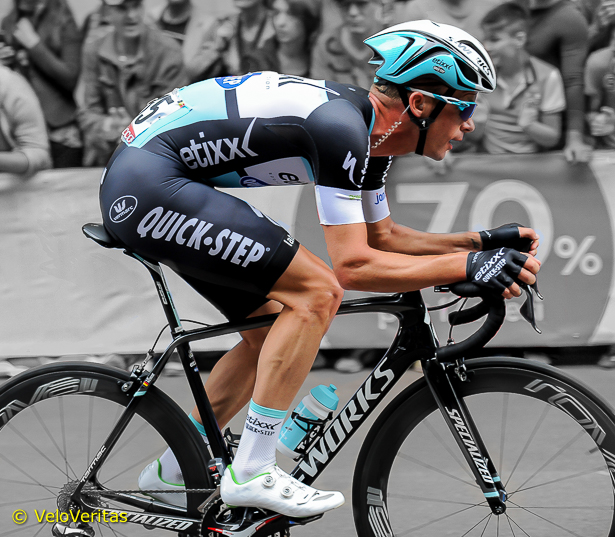
When did you first think that Iljo would be a racing cyclist?
“When I had the hamburger van he would come with me and see the different sports – he played soccer and squash.
“But it wasn’t until I took the job at the velodrome that he got into cycling – no nerves, no fear, soaring on those boards at seven years-of-age.”
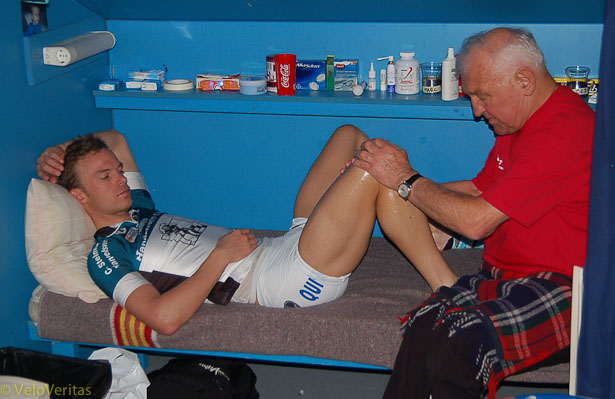
I believe your brother, Freddy raced – was he an influence on young Iljo?
“Freddy is six years younger than me and I helped persuade my mother that Freddy should be allowed to race.
“He was in the team with Rick van Slycke – who’s now a DS with QuickStep – which won the Belgian team pursuit championship in 1984.
“He was a rider and a mechanic and a director with the BBB company which makes cycle components and tools.
“He was more than just a mentor to Iljo, he was his godfather, too.
“He helped Iljo a lot and when Iljo needed equipment then Freddy would help but Iljo still had to pay ‘cost’ for it – we were from a poor family and Iljo was brought up to understand the value of things and that you had to work for what you wanted in life.”
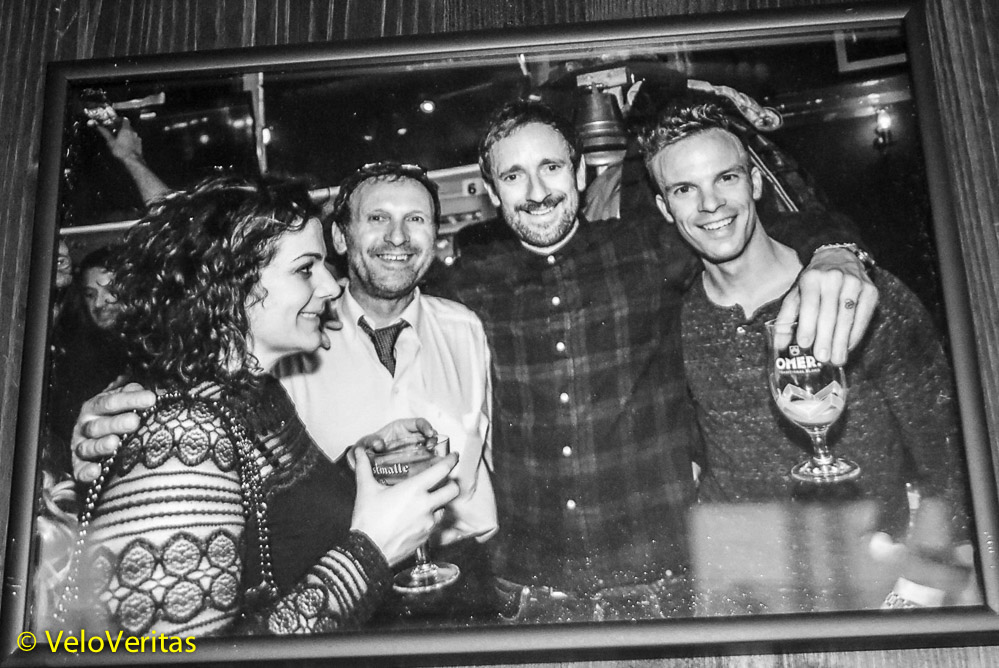
Iljo’s first National result shows as ‘Novices Pursuit Champion’ in 1998…
“When I worked at the track and did coaching, I watched what went wrong with a lot of the promising young riders – their parents.
“They tell the youngsters they’re going to be stars; when Iljo won I would tell him it was an easy win and he should keep his feet on the ground – we have a box with 50 medals in it!
“I didn’t treat him differently from any of the other kids and I didn’t do too much to help him, not like many of the parents, who did.
“We’d go to road races and there would be kids there with 400 supporters, having their ride video-ed.
“We’d think; ‘we’re never going to be able to compete with this stuff!’
“But the thing I always taught Iljo was patience; I would tell him that he was going to be good – but all in good time.”
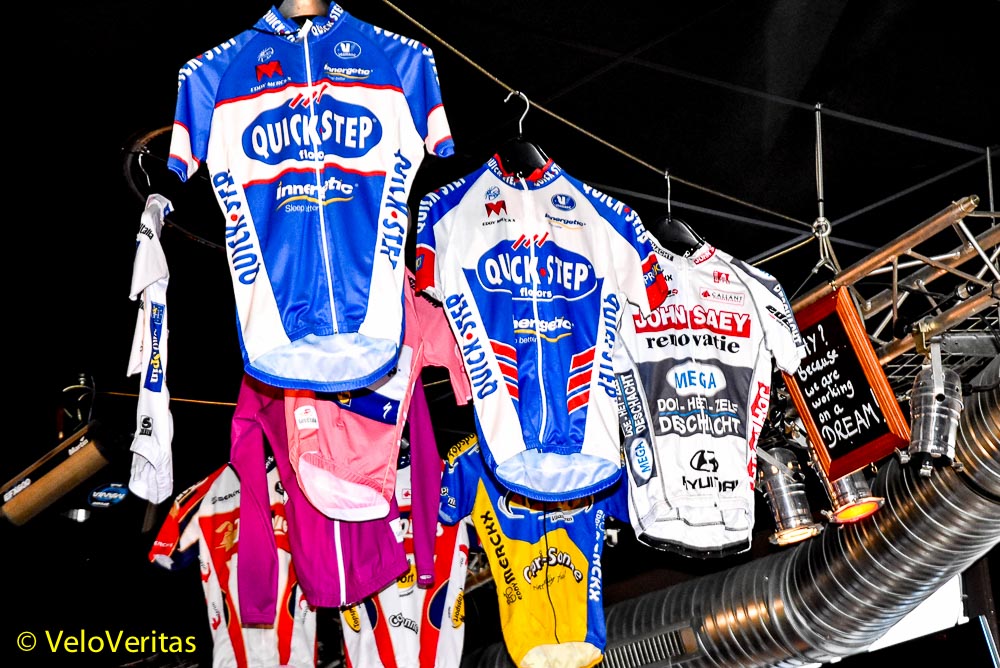
The 1999 season and Belgian Junior Madison Champion with Dimitri De Fauw; it must have been a big blow to Iljo when Dimitri took his own life.
“Dimitri was a huge talent, Iljo was clever but Dimitri was very fast, he was so strong he could break chains.
“When Dimitri died it was one of a chain of events in Iljo’s life which caused him a lot of sorrow – in 2006 there was the fatal crash of Isaac Galvez in the Gent Six Day; 2008 was the year of his suspension problems; then in 2009 Dimitri took his own life and Iljo’s team mate Frederiek Nolf died in his sleep at the Tour of Qatar.
“And then in 2011 Iljo’s best friend Wouter Weylandt died in a crash in the Giro.
“When Dimitri died, Iljo couldn’t go to the funeral, it would have been too much for him…”
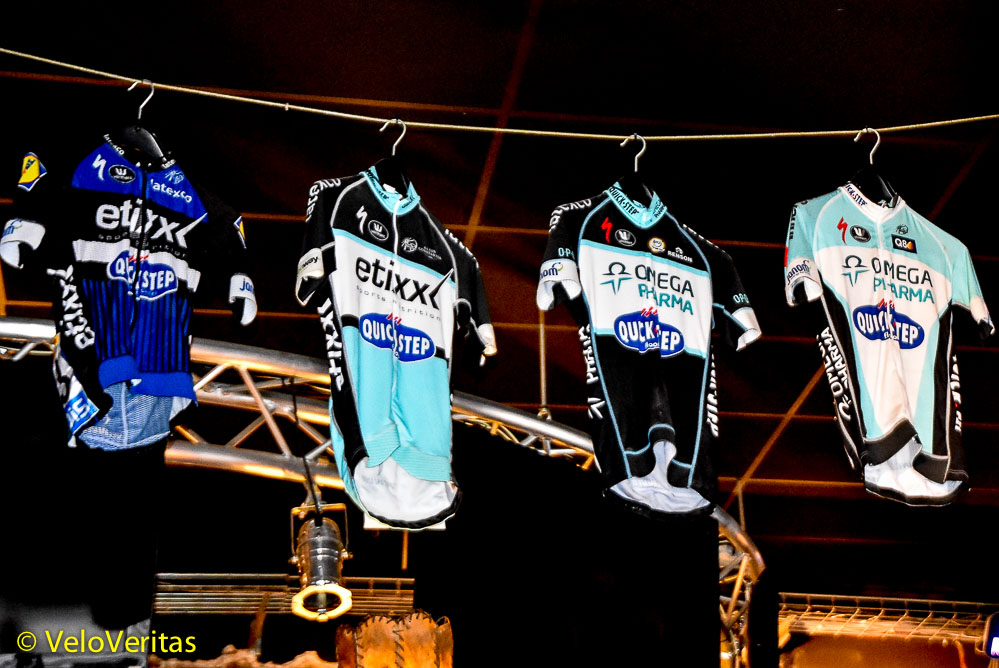
In 2004 Iljo signed professional with Jong Vlaanderen, that must have been a proud day?
“Again, ‘yes and no.’
“When he was 18 he was studying to be a sports teacher but the Belgian Olympic Committee wanted him to sign with the team; the proposal was to stop studying and prepare for the Worlds.
“He asked me if we could talk and told me that if he didn’t accept the proposal then his chance was gone; he said that if it didn’t work out then he would go back to his studies – and that was how he came to go professional.”
It struck me that there was pressure on him from an early age to pick up the line of succession from Patrick Sercu and Etienne de Wilde as ‘Kuipke King’?
“Not really, we were always careful not to expect too much of Iljo too soon.
“When Etienne quit it was expected that Dimitri would pick up the baton and he was paired with Matt Gilmore but that didn’t work out, nor did pairing Matt with Wouter Van Mechelen.
“They even paired Matt with Tom Steels and they rode World Cup madisons but it wasn’t a great success.
“Iljo only paired with Matt after those pairings all failed to gel – and of course that worked out very well for them both.”
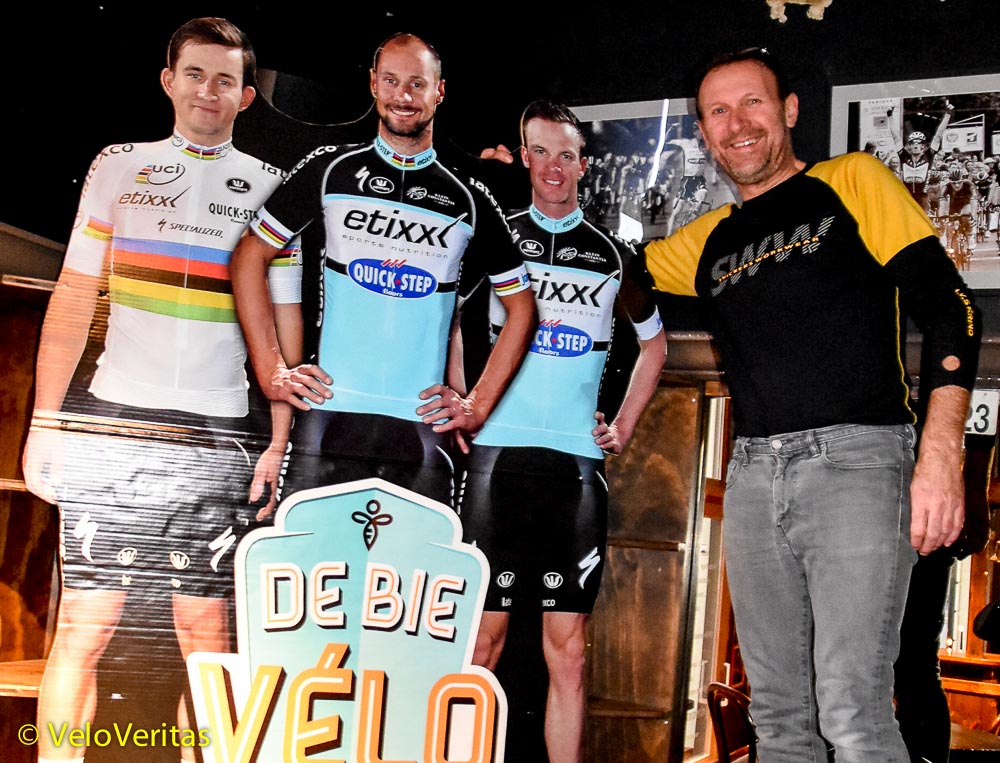
Breakthrough with the Grenoble event then Gent Six Day wins in 2005.
“Grenoble was a ‘stepping stone;’ I didn’t think; “this is wonderful,” and of course I was proud when he won here in Gent but always you have to keep things in perspective and your feet on the ground.”
In 2008 there was the contaminated supplement case where he was wrongfully accused of doping…
“I helped as much as I could, he came here to see me and I was hard on him; ‘tell me!’ I said to him. But I could see from his eyes that he was not guilty of doping.
“We went through the options, could it have been his doctor or his soigneur spiked him?
“But we rejected these options and eventually discovered that the problem was with contaminated supplements.
“That case isn’t finished, our lawyers are pursuing it through the Court of Human Rights, we presented 1,200 pages of evidence in Flemish but they wouldn’t accept it unless it was in English or French. We costed translation – it would have taken six months and cost 60,000 Euros, how were treated wasn’t correct.”
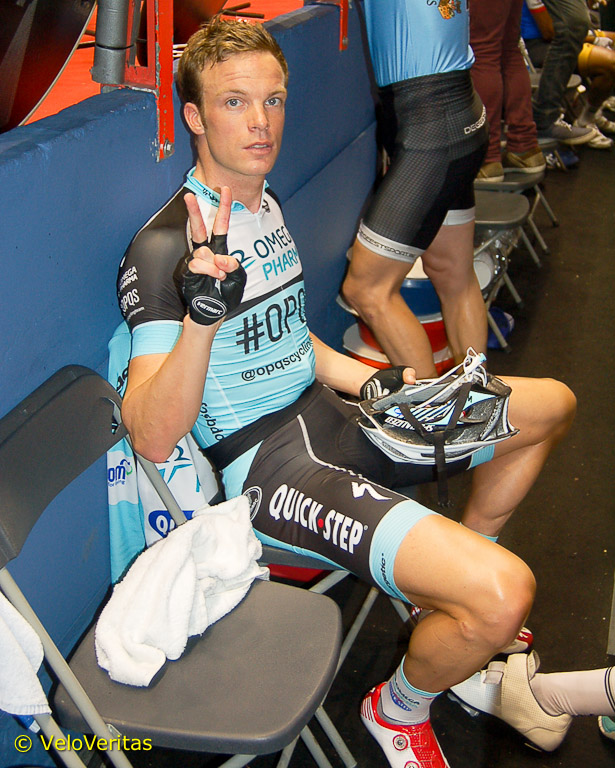
Six wins in the Gent Six Day, four second places and one third place, did you ever imagine he’d achieve these results?
“Never!
“Of course I’m very proud but again, you must keep your feet on the ground – there are no World or Olympic titles.
“People say to me that I must be the proudest father in Belgium, I say, what about Tom Boonen’s father?”
Iljo, QuickStep, you, Patrick Lefevre, hard to separate?
“Iljo signed his first contract with QuickStep right here in Café de Karper.
“You know that every problem has an advantage; when Iljo had his woes with the UCI and the contaminated supplement, Mr. John Saey, who owns a big building refurbishment company, watched and listened to what was going on and started a one man team for Iljo so he could ride the kermises here in Belgium when he couldn’t ride UCI races.
“Mr. Saey and Patrick Lefevre have been great supporters of Iljo; Patrick continued to pay Iljo during his suspension – he’s a West Flandrian and his word means something.
“Always correct, listening, doing what he has to do.
“All these things come together, Patrick, Mr. Saey, Iljo, de Karper and me – I’ve been around the sport for a long time with my hamburger van at sports events, then as track manager and of course de Karper is now in legend with many foreign visitors.”
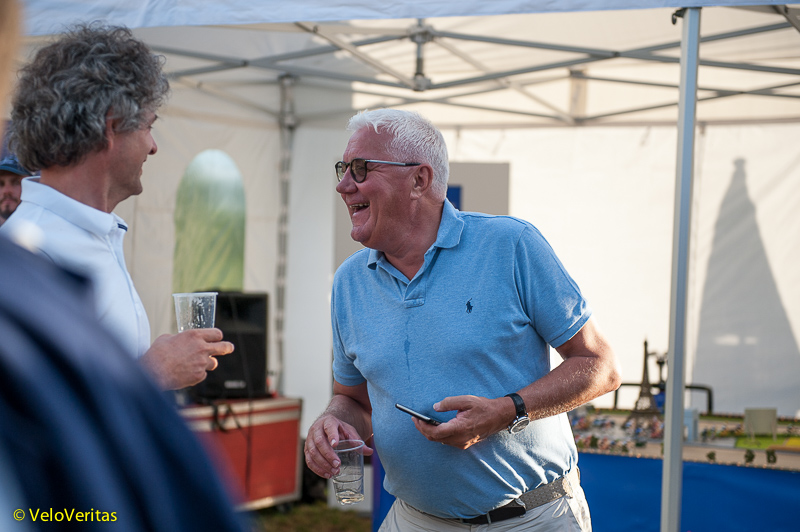
I notice that the memorabilia here in de Karper has changed over the years?
“I keep my favourite things in the flat upstairs for safety, people try to steal things!
“But I’m always changing things round to suit the season; right now we have Six Day stuff on display but come the spring we might put up Iljo’s Paris-Roubaix bike for folk to see.”
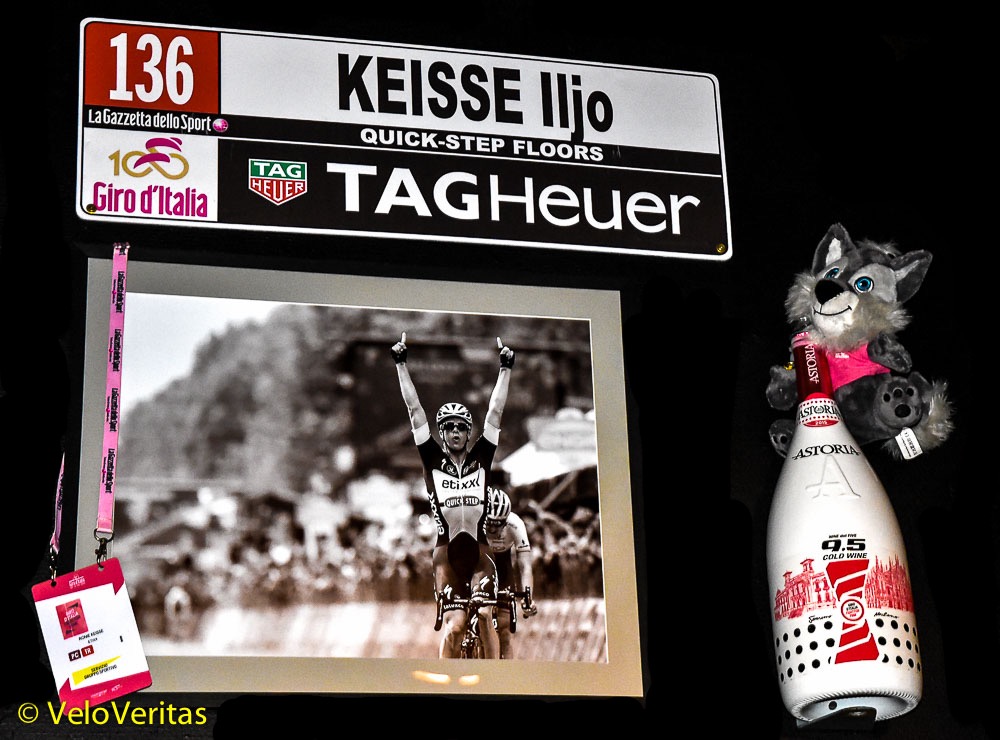
Iljo, Ronie, de Karper, the Kuipke, QuickStep, those pan flat concrete section roads, the unfenced fields – Heartland – we love it, all of it.
With thanks to Ronie for his time and memories.
And if the Good Lord spares us, see you in de Karper at Het Nieuwsblad in 2018?
